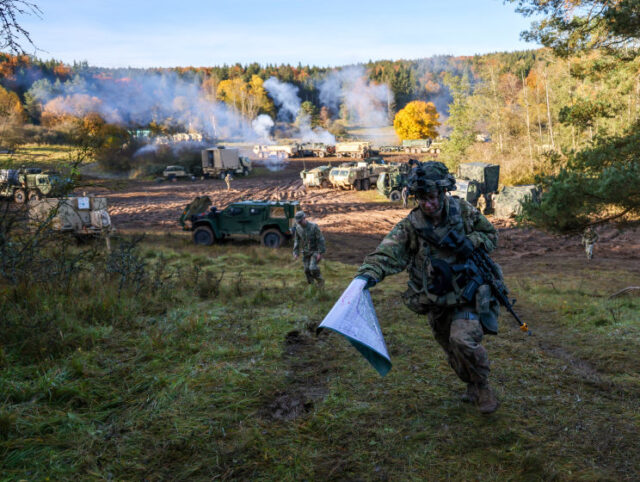NATO has a chance of discouraging Russia from attacking a member state if it can show it is ready to fight back within a three-year timeframe, the head of the Polish National Security Bureau warns.
Jacek Siewiera, the head of Poland’s National Security Bureau (BBN) agrees with German assessments that there is a real threat Russia will try to attack a NATO member state, but says their estimates of such an event being a decade away is far too optimistic, saying he believes the bloc has three years to prepare.
Replying to a study by the German Society for Foreign Policy (DGAP) which claimed NATO must be prepared to fend off a Russian assault within ten years, Siewiera said the assesment concurred with his own view and with reports by American military thinkers, but said the timescale was wrong. While NATO should prepare set its own pace against “The time it takes for Russia to reconstitute its army”, as the DGAP report noted, Siewiera said in an interview with Polish Newspaper Nasz Dziennik Russia would be able to regenerate its military force in three years, not nine.
Dziennik Polska-Europa-Świat reports Siewiera asserted the Russian arms industry is working day and night and “is able to rebuild resources within the next three years”, and that NATO should clearly signal that it would deter aggression with military capability. As NATO says, si vis pacem, para bellum.
Siewiera later clarified his remarks and said: “To avoid war with Russia, countries on [NATO’s] eastern flank should adopt a 3-year time horizon to prepare for confrontation”.
Russia has experienced considerable military losses during its invasion of Ukraine but, despite a sanctions regime imposed on the west, has managed to step up military equipment production. Key parts of its military — particularly its large airforce — have barely been touched by the conflict, leaving it a potentially potent adversary still.
The remarks from the Polish defence expert come amid the context of a new government incoming in Warsaw, which he is clearly worried will slash military spending for political reasons, rather than out of practical consideration of what the military actually needs to prepare for. The new government has a “natural right” to review all spending, Siewiera reflects, but to cancel arms contracts “without reference to the actual needs of the army and operational planning… would be an extremely disturbing signal.”
Whether NATO — particularly the European part of the alliance — is capable of making itself able to push back against the new wave of Russian aggression or not is another matter still. As reported last week, a “high-level defence conference” in Berlin was warned NATO could fail to win the early stages of a war on its eastern flank because it wouldn’t be able to rush its own forces to the border in time.
The Times reports German academic Sönke Neitzel said Germany’s own army was at least 15 years away from being combat-ready, and that things as they are simply amounted to throwing away the lives of European soldiers in the “first battle” with Russia because there was no hope of winning. The historian compared the situation to Napoleon invading the German states, stating: “they were washed away. Historical structures can be washed away. That’s the lesson from history.”
Also reported to have spoken at the conference was Finnish Brigadier-General Vesa Valtonen, who compared Ukraine’s war now to that of Finland’s against Russia in 1939. The tiny Finnish state managed to hold out against Russia against all odds and inflict defeats, but in the end could not hope to win against the vast reserves of a country as large as Russia.
He said: “We lasted alone for 105 days… The last third of the war was looking like Ukraine is now: attrition. Our side didn’t have reserves. The other side has or had them. There are 40 million people in Ukraine. How are they going to [keep up] the mobilisation and such?
“Are we willing to produce enough ammunition so that they can keep on fighting? This is a long-term period. We can’t give up. You can’t win a war of attrition against Russia.”

COMMENTS
Please let us know if you're having issues with commenting.